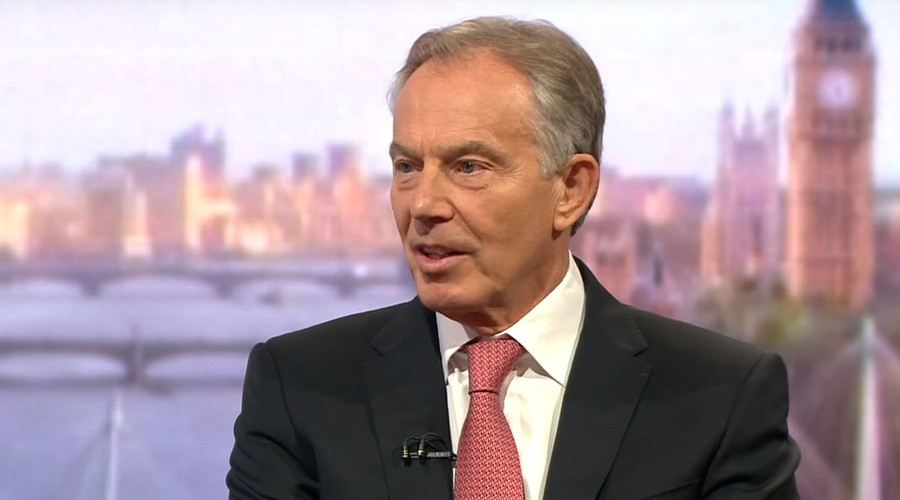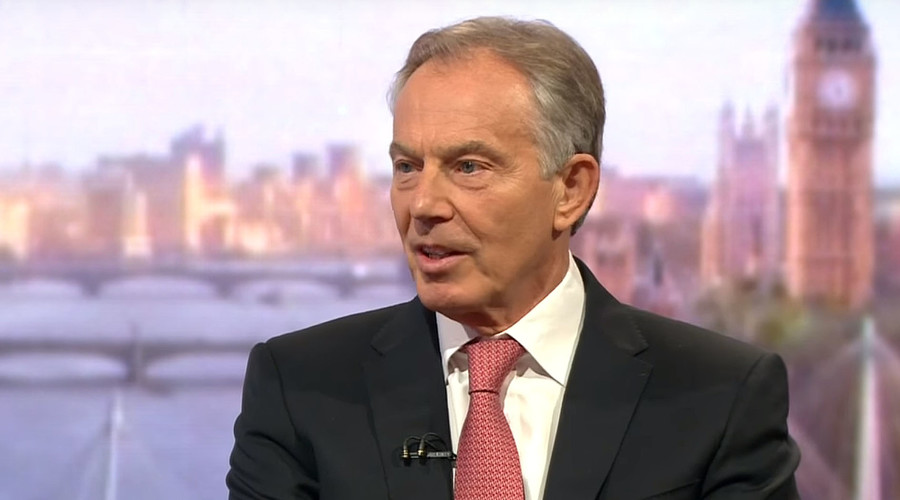

His entire set of teeth, and gums, must be gold plated by now. Former British Prime Minister Tony Blair has decided to let the world, and more specifically Sir Keir Starmer’s freshly elected government, in on a secret: that artificial intelligence is inexorably majestic, glorious and sovereign. Embrace it and fob off the doomsdayers. Importantly for Blair, embracing it will ensure that the rivers of gold continue to flow into his private purse.
In May, the Tony Blair Institute for Global Change (TBI) released a report that unabashedly embraced the role of AI in influencing the way states govern. It is the accompanying document to Blair’s own address given at the Future of Britain Conference on July 9, which called for reimagining the state through the prism of AI. As he spoke, the sound of money going out the door was palpable.
The former PM would have the new Labour government believe, plucking various numbers out of the air, that technological reforms made to the public sector could see £12 billion of “annual fiscal space” at the conclusion of the first term, followed by £40 billion at the end of the second, with cumulative savings of £15 billion in the first term and £150 billion in the second.
As one has come to expect from Blair’s ruminations, complexity and troubling consequence is obscured by anaemic waffle. He found it hard to avoid the prospect that this enthusiastic embrace of AI by governments would see a contraction of the public sector, offering no details about chronology or severity. Little, as well, on how the revolution could offer “the best route to a society that is not only more productive but one that is more equitable… a contemporary version of the combination of economic efficiency and social justice.”
In Governing in the Age of AI: A New Model to Transform the State, the institute takes a hammer to the traditional caution expressed by the state. “Like all well-established organisations, the state has a bias towards caution. But this is an illusion – a failure to modernise, reform and deliver is a perilous course for a nation and those who govern it.” With a breezy confidence, the report estimates that £40 billion in annual savings will be made as things stand with current technology. “But of course, over time, this technology will accelerate dramatically in its capability, and so will the savings.”
The report is shameless in charting out the institute’s own marketing strategy. Here is the scenario, and we are happy to offer our services in facilitating it, swooping in for the corporate kill. “To access this opportunity [presented by AI], government will need a coordinated strategy to put in place the necessary infrastructure, sovereign capability and skills.” Appropriate data, “interoperable” across departments, will require investment. Models will need to be trained, with necessary computing power to “for AI to run at scale”. Enter the linking of hands between government and the private sector, something the institute is more than willing to facilitate.
Blair’s donor base is impossible to discount when considering his speeches on the subject of AI and the reports of his institute. Over the years, the billionaire co-founder of Oracle, Larry Ellison, has forked out vast sums to the organisation. In 2021, Ellison, through his philanthropic offices, furnished the institute with US$33.8 million, with a promise of US$49.4 million in 2022. These contributions should suggest more than a bit of string pulling by the likes of Ellison over the TBI research agenda, a case of purchasing corrupted advice that can be duly advertised to government and corporate clients the world over.
Benedict Macon-Cooney, the body’s chief policy strategy, is dismissive of the suggestion. “There is no conflict of interest, and donations are ringfenced.” He did, however, concede that the institute did partner public officials with companies to attain their respective goals. “Sometimes the state is the best way to do things, but if we are [to] look around and see private providers which would be better helping with reforms, then we will say so.”
In what seems like a mud wrestle between the mendacious and truth in slant, Goldman Sachs has begged to differ from the TBI’s dreams of technological nirvana in a dampening analysis. On this occasion, the devil is singing in different registers. In its June 2024 report, the investment banking colossus notes that the vast sums being expended – an estimate of US$1 trillion over the next few years is offered – on data centres, chips, AI infrastructure and the power grid has, and will have “little to show for it in so far beyond reports of efficiency gains among developers.”
The report features an interview with MIT’s Daron Acemoglu, who estimates that a mere quarter of tasks subject to AI “will be cost effective to automate within the next 10 years, implying that AI will impact less than 5% of all tasks.” In his interview, Acemoglu observes that numerous tasks currently being performed by humans “for example in the area of transportation, manufacturing, mining, etc., are multifaceted and require real-world interaction, which AI won’t be able to materially improve any time too soon.”
The GS Head of Global Equity Research, Jim Cavello, is even less impressed, noting that AI technology, to be viable, must be able to solve complex problems. AI technology is not the holy grail of company valuations, being simply too costly in terms of building critical products such as GPU chips and unable, so far, to “replicate humans’ most valuable capabilities.”
There you have it. On the one hand, the flowery promises of AI benefits and savings arising from a fierce embrace of technology by governments, as put forth by Blair and his institute. Then we have Goldman Sachs, similarly famed for its ruthless tailoring of advice to swell monetary returns. Neither is encouraging, but Blair’s offerings always come with a barely concealed odour of self-interest masquerading as human salvation.
Dr. Binoy Kampmark was a Commonwealth Scholar at Selwyn College, Cambridge. He currently lectures at RMIT University. Email: [email protected]